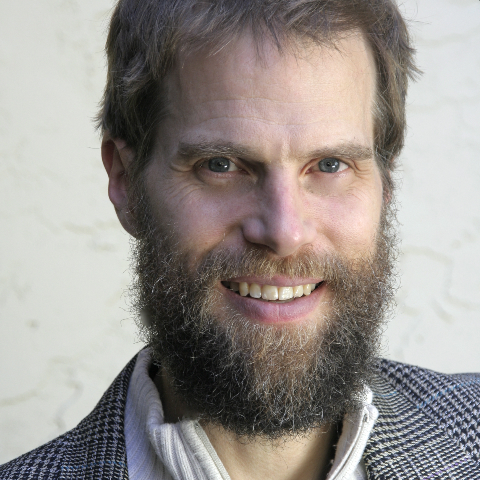Jonathan “Joe” Betts-LaCroix, MSc
Jonathan “Joe” Betts-LaCroix, MSc is CTO of Vium. He is a scientist and entrepreneur known for his discoveries in biophysics and for creating the world’s smallest personal computer. He is working to optimize medical research priorities in the U.S.
Joe has participated in the Quantified Self movement since the beginning, and has given numerous presentations on aspects of self experimentation and tracking, including experiments in living a 28-Hour day.
In 2010 he joined startup Halcyon Molecular to lead its automation efforts. Halcyon, funded by, among others, Elon Musk and Peter Thiel, attempted to sequence human DNA using electron microscopes. The underlying goal of Halcyon’s work was to make meaningful progress in understanding human biology in order to improve medicine.
Following the theme of improving medicine, Joe founded the Health Extension Foundation in 2012, a not-for-profit community working to promote investment in the biomedical research to prevent age-related diseases, where he is currently also an Executive Director. Its flagship monthly salon series is attended by Silicon Valley scientists, investors, entrepreneurs, designers, and developers.
The efforts of the people working in Health Extension are motivated by recognizing that:
- Most healthcare money treats age-related diseases;
- Aging is the single biggest risk factor for these diseases;
- But funding to address the biochemical processes of aging is less than 0.01% of healthcare spending—and so we should correct this missed opportunity to optimally assign medical research and translation priorities.
In 2013 Joe cofounded Vium, which has raised $33M to accelerate the development of new medical therapies by automating in-vivo research. Vium launched publicly in 2016. They are accelerating medical advancement by bringing 21st century technology into living systems research.
He is also a biotech angel investor for such companies as StemCentrx, Recursion Pharma, and Spring Discovery, as well as a part-time partner at Y Combinator.
Joe is also IP Advisor at Zetta Research, advising on Intellectual property matters since 2009, the same year he became a Mentor and Lecturer at The Funded Founder Institute, where he lectures on intellectual property and idea research at Founder Institute sessions in Paris, Munich, Berlin, NYC, DC, San Diego, Seattle, San Francisco, Istanbul, and Palo Alto, as well as mentor and support startup CEOs building meaningful companies.
Joe has been for several years assisting in product strategy, funding, and organizational development to several biotech startups, as an Advisory Board Member.
Joe started his career as a member of technical staff at IBM Almaden Research Center in 1993, where they were inventing and prototyping novel human-computer interfaces. After two years there, he joined Analog Design as the CTO. He worked on designing and manufacturing of electronic systems in support of industrial research and manufacturing process control. He focused on systems containing specialized and unusual analog electronics.
In May 2000, he founded and became a CTO at OQO, a computer hardware company that was notable for the manufacture of handheld computers. Its systems possessed the functionality of a tablet PC in a size slightly larger than a personal digital assistant (PDA). According to Guinness World Records, the “OQO” was the smallest full-powered, full-featured personal computer in 2005.
This created a new category of mobile computing devices between PDAs and laptops, which were initially dubbed the “Ultra Personal Computer”, and which subsequently became known as the “Netbook”. The device has won many awards for its innovation, aesthetics, and functionality. This included Popular Mechanics Editor’s Choice Award, a Business 2.0 Editors’ Choice, PopSci’s Best of CES, The Stevie Award — 2008 Best Product, and Japan’s 2007 Good Design Award.
After OQO, Joe was active in Silicon Valley as a lecturer and mentor for CEOs of startup companies.
Joe has over 80 patents granted and pending in fields ranging from biophysics and safety systems to antennas, thermal systems, user interfaces, and analog electronics. He has written numerous peer-reviewed publications in fields such as biophysics, genetics, electronics, and robotics.
Beginning in earth sciences, Joe earned his Bachelor’s of Arts Degree at Harvard (B.A.) in 1990, where he contributed to the field of long-term regulation of oxygen on Earth over multi-100 Million-year timespans, quantifying the effect of the burial efficiency of organic carbon as a feedback mechanism.
In 1992, he earned his Master’s Degree of Science in robotics at MIT, where he designed and built an autonomous, robotic system that enables research into ocean circulation patterns and climate change, by operating untended for up to one year at sea on battery power and collecting hyper-pure water samples at predetermined intervals.
Working at Caltech as a Research Fellow, Joe moved into biophysics, publishing a paper in Science that has been cited by more than 700 subsequent scientific works. In this work, he, along with David Beratan and Jose Onuchic proved for the first time that electron-transfer rates in proteins are determined by the electron orbital interactions in the protein structure.
Watch Transcience and Permanence with Joe Betts-LaCroix. Watch Joe Betts LaCroix at Ending Age-Related Diseases 2018 — Entrepreneurial Focuses on Aging. Watch TEDxSF — Joe Betts-LaCroix — Stayin’ Alive: Don’t Go Gentle into that Good Night.
Watch his talk at LEAF’s Ending Age-Related Diseases 2018 conference. Watch Meet the Health Self-Trackers with Joe at Stanford Medicine X. View the list of Joe’s publications, patents, and contributions in research at Google Scholar.
Visit his LinkedIn profile and Vium page. Follow him on Facebook, Instagram, and X.
